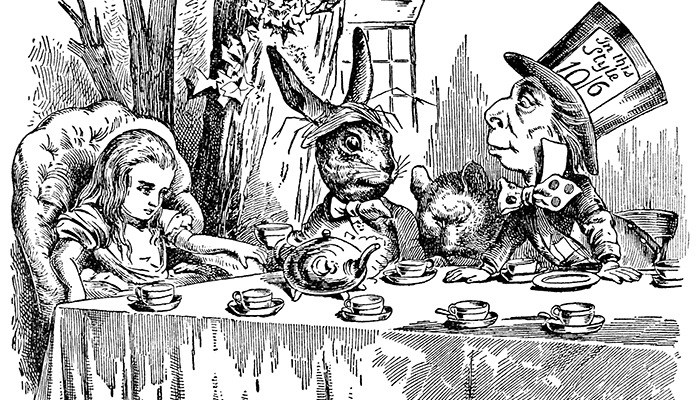When Sault Ste. Marie City Council met weeks ago, Mayor Christian Provenzano predicted it would be council's last virtual meeting of the 2020 COVID-19 pandemic.
In expecting his 10 happy campers to soon be sitting together around the council table, the mayor's optimism turned out to be a bit premature.
Councillors held a special meeting Monday, not at the Civic Centre, but once again via Zoom teleconference.
Ward 1 Coun. Sandra Hollingsworth didn't attend or participate.
Councillors talked about whether to allow proxy voting – permitting council members who aren't present at a meeting to appoint other councillors to vote on their behalf.
Ontario's Municipal Act was recently amended, granting municipalities authority to change local procedural bylaws, allowing proxy-holders under some circumstances.
Proxy voting isn't a new concept.
One of the first advocates of the idea was Charles Lutwidge Dodgson, the 19th-century British mathematician who wrote Alice’s Adventures in Wonderland and Through the Looking-Glass under the pen name Lewis Carroll.
Proxies are widely used in the corporate world, where shareholders of a corporation who can't attend a shareholder meeting may allow their ballot to be cast by another individual or group.
"This power helps ensure continuing representation of constituents’ interests on municipal councils when a member is unable to attend in person due to, for example, illness, a leave of absence, or the need to practice physical distancing," says Ontario's Ministry of Municipal Affairs and Housing in a recent policy statement.
The province advises municipalities to consider the following factors in any discussion of the issue:
- how proxies may be established and revoked
- circumstances where proxies may or may not be used
- how a proxy holder may participate in a meeting including voting, speaking, or asking questions on behalf of the appointing member
Ontario law imposes a number of limitations on the appointment of proxies:
- a proxy holder cannot be appointed unless they are a member of the same council as the appointing member
- a member cannot act as a proxy holder for more than one other member of council at a time
- an appointed proxy is not counted when determining if a quorum is present
- absence rules still apply for councillors. This means that a member’s seat would become vacant if they are absent from the meetings of council for three successive months without being authorized to do so by a resolution of council
Malcolm White, the the Sault's chief administrative officer, expressed concern that not enough is known about the specifics of Ontario's new proxy provisions and he advised councillors to go slow.
Councillors agreed and declined to allow proxy voting at this time.
However, City Council did approve a resolution allowing the option of electronic participation in meetings of City Council and its boards and committees, even after the provincial COVID-19 emergency is lifted.
In other business, councillors agreed to enter a working agreement with the Ontario Federation of Indigenous Friendship Centres.
